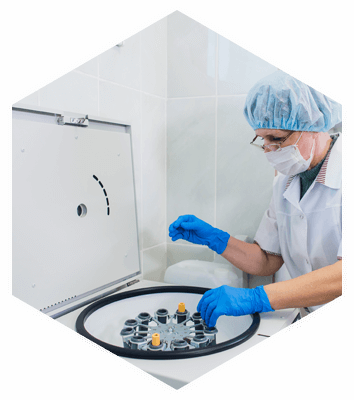You’ve got a degree in biomedical science – what now?
Biomedical science is an exciting subject that puts you at the heart of medical breakthroughs in our healthcare system. Jobs related to biomedical science will give you a real insight into the workings of the human body – you might find yourself treating diseases, building artificial body parts or analysing the brain and how it works.While you were studying biomedical science at university, you acquired expert knowledge, skills and experience. Your interest in conducting medical research and treating human diseases makes you a great candidate for a number of roles. Speak to the Hyper Recruitment Solutions team if you’re currently looking for a job in biomedical science.
In studying a biochemistry degree, you will have acquired a wide range of specialised skills and invaluable experience, including the ability to understand complex biological processes and how to perform complicated experiments accurately.
What jobs can you get with a biomedical science degree?
Now that you’ve completed your degree in biomedical science, you’ll need to start thinking about specialising. As a student, you may have found that you were naturally better at a particular area of biomedical science. This should guide you on your quest to find your dream biomedical science job!Here are some of the jobs you can get with a biomedical science degree:

Toxicologist
Becoming a toxicologist means working in a laboratory and evaluating the impact of chemicals and toxic materials on humans, animals and the environment.Biotechnologist
As a biotechnologist, you’ll work towards improving people's quality of life through the study and manipulation of cells and organisms.Physician Associate
This is a hands-on role in the world of medicine. You’ll be examining, diagnosing and treating patients under the supervision of a doctor.Microbiologist
As a microbiologist, you will study microorganisms and their impact on society. You will work towards diagnosing, treating, and preventing the spread of diseases.Forensic Scientist
You will examine forensic evidence by practising a range of scientific techniques. Then you’ll write reports on your findings to advise legal teams.Key requirements of most Biochemistry Jobs:
Practical laboratory skills
Research and data analytics
Writing Reports
Impeccable organisation
Average Salary
£24,214 - £43,772
£24,214 - £43,772
Typical Working Hours
38 to 40 per week
38 to 40 per week
Developing your Biomedical career
Whichever biomedical science career you choose, it’s guaranteed that you’ll develop your skills as you work, possibly as part of a structured graduate scheme.To keep your understanding of biomedical science up to date, you could become a member of a professional body, such as the Royal Society of Biology or the Biochemical Society.
Biomedical science graduates are employed by a wide range of public sector organisations (such as the National Health Service and Public Health England), as well as a wide range of companies in agriculture, food and water. There's no question that a biomedical degree will open many doors for you.
Current Biomedical Vacancies